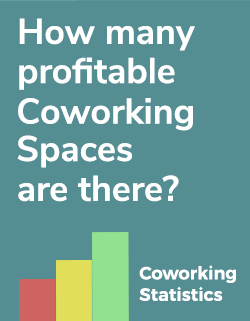Many coworking spaces promote access to community networks and events, but do these features alone directly result in members exchange services, gaining new clients and building more revenue? Designing a collaborative space for businesses to work next to one another may deem to be ‘mission complete’, but it cannot be assumed those businesses will automatically collaborate without further facilitation. Workspaces successfully helping members to grow their business dedicate a large amount of time to connecting members as a number one priority.
Focus on Human Connection
Firstly, they ensure Community Managers are not consumed by the logistics of running a building on the ground; they are instead tasked with growing the ecosystem through making introductions, building relationships, facilitating partnerships and recommending service providers. Secondly, they utilize technology to enhance efficiency of this process for Community Managers (and we don’t just mean the standard member network).
Dominik Hofmann, Founder of coworking space Heimathafen Wiesbaden, built his business model upon similar premise to the vast majority of coworking providers: he likes to be connected. Notably, however, Hofmann executed particularly well when it came to creating more economical opportunities through connection. Small physical facilities are no limitation to Heimathafen Wiesbaden’s revenue stream as they have spent the last 18 months curating a network through referrals and taking commission from each service secured, exchanged and delivered between members and the larger ecosystem.
Hofmann explained: “we dedicated 2 days per week to connecting people as a natural response to demand for service recommendations, rather than a deliberate new pathway to making profit. Our Community Managers are the enablers, building a network on the ground by matching people on technical competencies and capacities, in addition to assessing the chemical fit. This only works because we know the individuals, their workstyles and their values. No algorithm or database can perform this process better than the human brain. We then make the process sustainable by utilizing Coliga, an online sharing platform, to handle the aftermath of introductions by streamlining jobs and facilitating contracts.”
Utilizing Technology Platforms for Sustainability
Whilst many spaces have their own member networks built internally or provided by coworking software providers such as Nexudus, Essensys, Habu, WUN or Cobot, others are building service-specific features or becoming part of a larger service sharing platforms. Both routes allow coworking spaces to directly accelerate the number of services exchanged between members and the wider ecosystem. For example, Co+Hoots in Phoenix has embedded a ‘Contract for a Project’ feature into their contact page, allowing the external community to submit project, skill and deadline details to the coworking management team who then recommend talent from their internal community.
The greater and long-term impact of shared services is even more visible when considering the reach of shared business services through umbrella platforms such as Coliga and Included.co. Pedro Jardim is not only the Founder of Coliga but it also the Founder of Agora, a Berlin based coworking space integrating Coliga onto it’s website.
Jardim argues that “the coworking market is still pretty small. Existing coworking software providers deliver a broad range of high level solutions through a one-stop-shop approach, whereas Coliga focuses on the depth of trusted connections and referrals within communities, to be used as catalysers for building jobs and professional reputations. As the current coworking market may not be sustainable for our business in terms of its current size, we work with different agents looking to activate their local reputation. We bring a curated and personalised experience to the gig economy where the focus is not on how many people can find and compare services, but how those people are referred and directly connected.”
Hector Kolonas, Founder of included.co, built a platform for community members, managers and B2B vendors to share business services at a discounted rate and currently has 209 coworking spaces across 42 countries utilizing the platform. Similarly to Jardim, Kolonas recognises that B2B vendors outside coworking spaces must be involved in the sharing of services order for coworking to be sustainable.
He states “we built a platform to help workspace operators make more revenue, whilst helping members make and save more money. Without this, coworking would become a very hostile environment. Whilst I believe the main benefit of coworking is, and will always be, the sharing of knowledge, insights and expertise; the sharing of business services most definitely enriches the coworking experience. Businesses need healthy cash-flows in order to survive. Therefore, included.co doesn’t necessarily make coworking better, it makes it more sustainable.”









